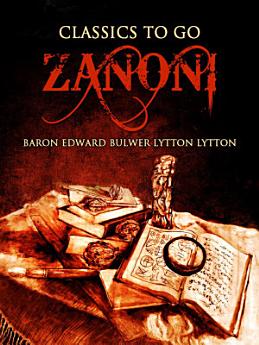Zanoni
Mar 2020 · Otbebookpublishing
Ebook
462
Pages
family_home
Eligible
info
reportRatings and reviews aren’t verified Learn More
About this ebook
In two novels, Zanoni (1842) and A Strange Story (1862), Bulwer-Lytton invented the Occult/Dark Fantasy subgenre (as opposed to other subgenres of fantasy like Tolkienian High Fantasy). Academic critics usually describe Zanoni as a künstlerroman (novel of the maturation of an artist) and as an allegory of Science versus Art, but Zanoni is also the first modern British work of occult fantasy. Charles Dickens took the ending of A Tale of Two Cities (1859) from Zanoni. A strong argument can be made that the school of cosmic horror which H.P. Lovecraft made famous begins with Zanoni and A Strange Story, or at the least is heavily influenced by it.
About the author
Baron Edward Bulwer Lytton Lytton (1803-1873) was a multifaceted English writer, politician, and aristocrat whose life and work left an indelible mark on the 19th century. Born into a prominent family, Lytton's literary career began with poetry but soon expanded into novels, plays, and essays that captivated Victorian audiences. His works, such as "The Last Days of Pompeii" and "Zanoni," are celebrated for their vivid imagination and intricate plots.Lytton's influence extended beyond literature; he was also a significant political figure, serving as a Member of Parliament and later as Secretary of State for the Colonies. His tenure saw the establishment of British Columbia as a colony, reflecting his impact on the British Empire's expansion.Controversy was never far from Lytton. His phrase "It was a dark and stormy night" has become synonymous with melodramatic writing, yet it underscores his flair for dramatic openings. His personal life, marked by a tumultuous marriage to Rosina Doyle Wheeler, who later became a vocal critic, added a layer of intrigue and scandal that fascinated contemporaries and modern readers alike.Lytton's legacy is also notable for his influence on contemporary writers. His exploration of supernatural and mystical themes prefigured the works of later authors like H.P. Lovecraft. Moreover, his advocacy for social reform and his interest in the occult and metaphysics resonated with the intellectual currents of his time, making him a revolutionary thinker who bridged the gap between Romanticism and the burgeoning modern era.In sum, Edward Bulwer Lytton Lytton was a towering figure whose literary and political endeavors continue to intrigue and inspire, embodying the complexities and contradictions of the Victorian age.
Rate this ebook
Tell us what you think.
Reading information
Smartphones and tablets
Install the Google Play Books app for Android and iPad/iPhone. It syncs automatically with your account and allows you to read online or offline wherever you are.
Laptops and computers
You can listen to audiobooks purchased on Google Play using your computer's web browser.
eReaders and other devices
To read on e-ink devices like Kobo eReaders, you'll need to download a file and transfer it to your device. Follow the detailed Help Center instructions to transfer the files to supported eReaders.








